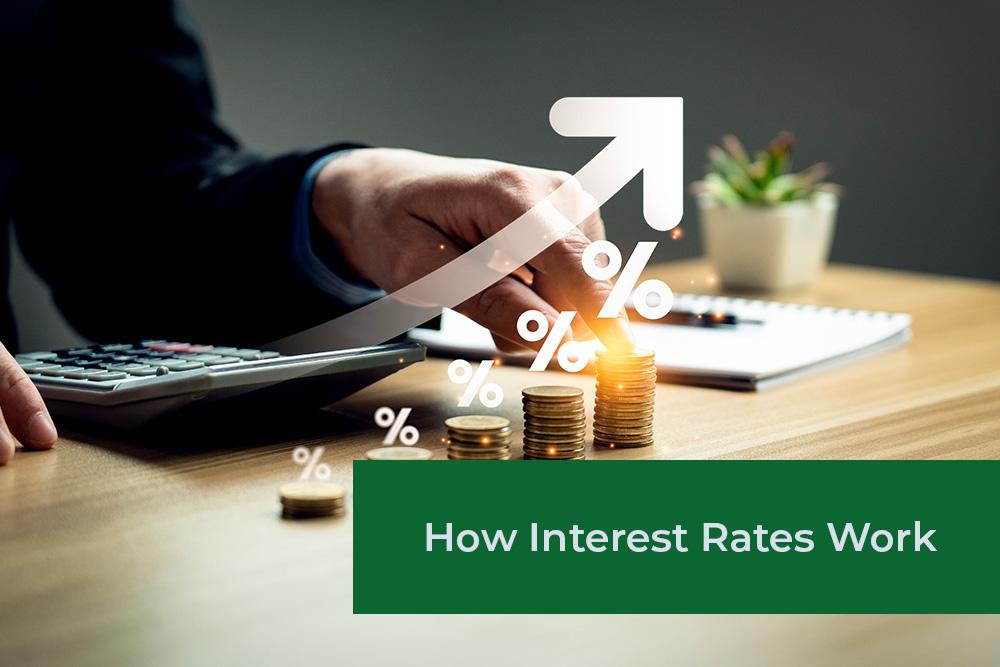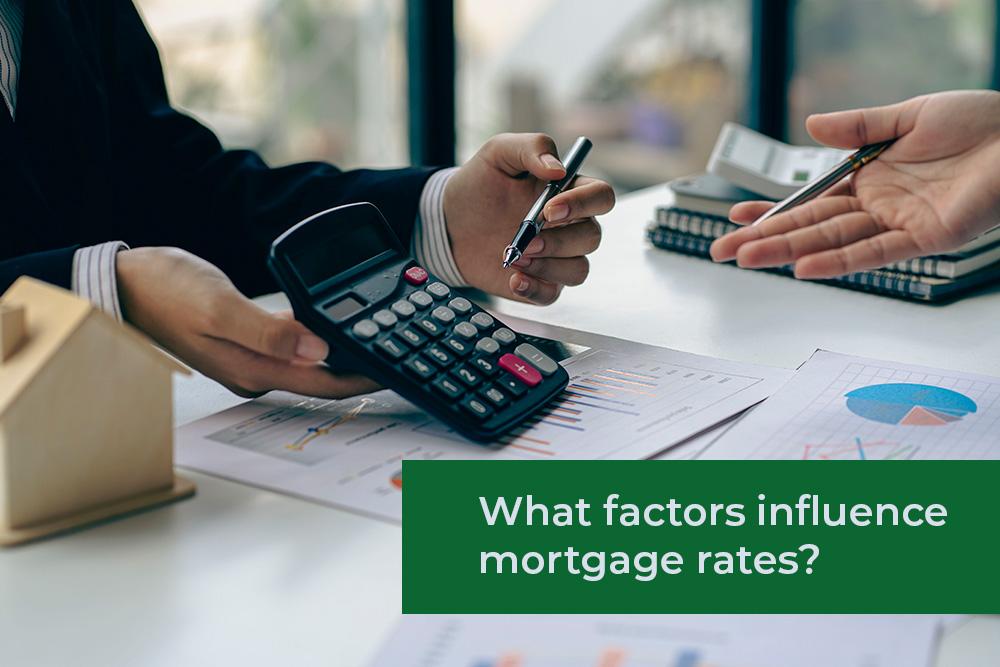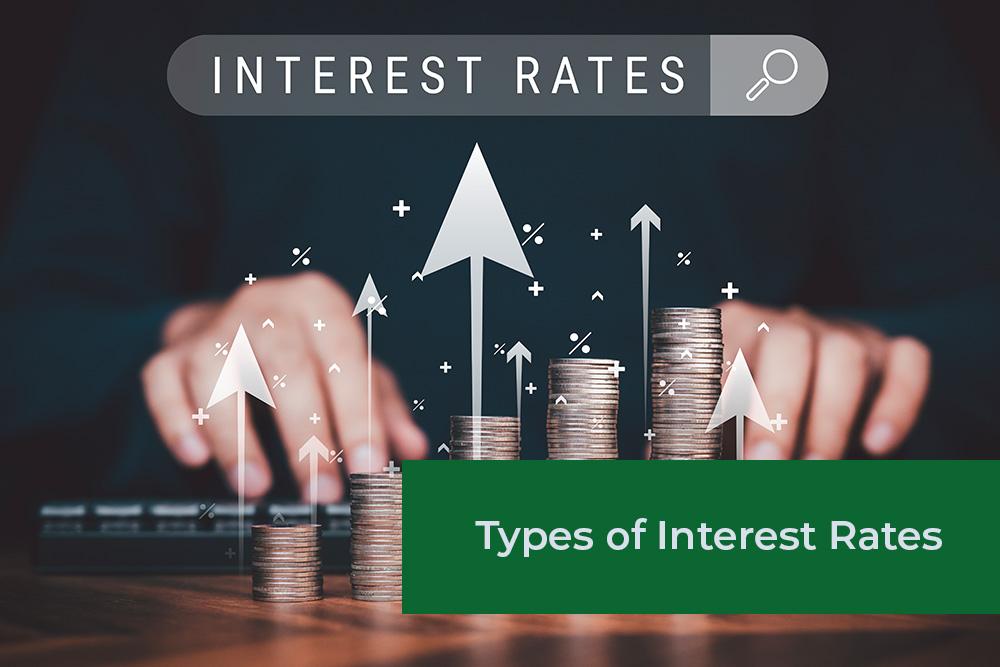Interest rates are an important part of any mortgage in Las Vegas. Interest rates vary based on the mortgage, so you’ll want to research and talk to a mortgage company in Las Vegas before settling on a mortgage to help finance your home. Knowing the interest rate can help you make important decisions about getting a mortgage based on your financial situation. To simplify your decision, we’re sharing the primary factors influencing Las Vegas mortgage rates.
How Interest Rates Work

The interest rates on a loan include the principal loan amount and any other charges or fees. The interest rate may change over the course of the loan’s lifetime, depending on whether you get a fixed-rate or variable-rate loan. Based on your financial status and personal preferences, a lender may advise that you take out either a shorter-term loan of 15 years or opt for a longer-term 30-year loan. One thing to remember when taking out a loan is that if the lender thinks you are at a higher risk of defaulting on the loan, the interest rates go up. For instance, if you apply for a loan with a down payment requirement below 20%, which is the standard payment, or if you have a poor credit score, you’re considered to be a risk in the lender’s eyes, and you’ll likely be charged a higher interest rate. The interest rate that you pay may also change depending on the loan.
What factors influence mortgage rates?

Las Vegas mortgage rates are primarily determined by a borrower’s personal financial situation. However, interest rates are also impacted by external factors like the economy and local real estate market. Although it’s not something people think about when getting a mortgage, the government’s monetary policy also influences interest rates. Collectively, those factors give you a good idea of what interest rates you will be paying in the short term and the long run with your home loans.
Here is a closer look at the top factors affecting mortgage interest rates:
- Inflation
- Economic growth
- Bond market
- Monetary policy
- Housing market conditions
Typically, inflation causes prices to rise over time. That is true of home loans in Las Vegas, along with the cost of other goods, products, and services that you buy or use. Inflation gradually diminishes the purchasing power of dollars. So, to compensate for that loss, mortgage lenders must maintain or sometimes increase the cost that they charge for interest rates so that they don’t lose money and maintain a net profit. For instance, if mortgage interest rates are set at 5%, but annual inflation rates are 2%, the lender only gets 3% back on interest rates. To minimize the risk of losing money with interest rates, a mortgage company in Las Vegas will closely monitor interest rates. If you take out a mortgage with a variable interest rate, the lender may adjust the interest rate during the next rate period to mitigate their loss.
The economy also affects how much homeowners pay in interest on their home loans in Las Vegas. Two main economic factors that affect interest rates are employment rate and gross domestic product (GDP). When the economy is growing, consumer spending increases and people earn higher wages. People are also more likely to take out mortgages to buy a home. While the increased demand for mortgages is good for lenders, that higher demand for mortgages increases mortgage rates, as lenders have limited amounts of capital that they can lend. On the other hand, when the economy slows, employment rates fall and wages decline. That translates to less demand for home loans and puts downward pressure on the interest rates that mortgage lenders offer.
The bond market, which includes corporate and government bonds, also affects the interest rates on home loans. Banks and lenders use mortgage-backed securities (MBSs) as investment products. Those debt securities offer yields that must be high enough to attract buyers. One advantage of the bond market is that it affects how much lenders can charge for mortgages. Ultimately, corporate and government bonds in the bond market are competing investment products that affect the yield on MBSs. While those bonds can affect the interest rates that governments charge, one of the most influential bonds is the 10-year treasury bond. Government bonds also guarantee repayment, while other bonds do not.
The federal monetary policy is another factor affecting Las Vegas mortgage rates. The Federal Reserve Bank has a monetary policy that can change over time. The bank’s monetary policy influences interest rates along with the general economy. While the bank does not set specific interest rates for mortgages, it does set the Fed Funds rate, which also adjusts the money supply in a positive or negative direction. The federal money supply has a major impact on interest rates that are available to homeowners seeking mortgages. When the Federal Reserve Bank increases the money supply, rates tend to drop, while rates rise when the federal money supply is lower.
Housing market conditions, which include local and national markets, also impact mortgage interest rates. Like the federal money supply and interest rates, housing market conditions fluctuate. If the market is strong, more homes are being built, renovated, and sold. When the market takes a downturn, on the other hand, home sales slow down, and people don’t make as many improvements to their homes, which makes them less desirable and less likely to sell. When the housing market slows down, people are also more likely to rent rather than buy.
Types of Interest Rates

Mortgages are offered with several kinds of interest rates, which are real, nominal, and effective. There are some differences among the interest rates that you’ll want to know when borrowing or investing.
A real interest rate subtracts anticipated future price increases from the nominal interest rate. For instance, if a loan has an 8% nominal interest rate, but lenders predict a 5% inflation that year, the annual real interest rate is 3%. The nominal interest rate is the annual interest rate that is charged on the loan you take out. The nominal interest rate is also called the coupon rate. The nominal interest rate does not include any other costs associated with inflation. Lastly, you can figure out the effective interest rate by calculating the nominal rate and the compounding frequency. The effective interest rate is the rate that borrowers and lenders primarily use to determine the loan’s total cost.
Along with the factors above, the loan’s time period also affects interest rates. The longer the loan period lasts, the higher interest rates are likely to be to cover the risk to lenders over time.
If you need more information on finding the right mortgage in Las Vegas, contact us today!









